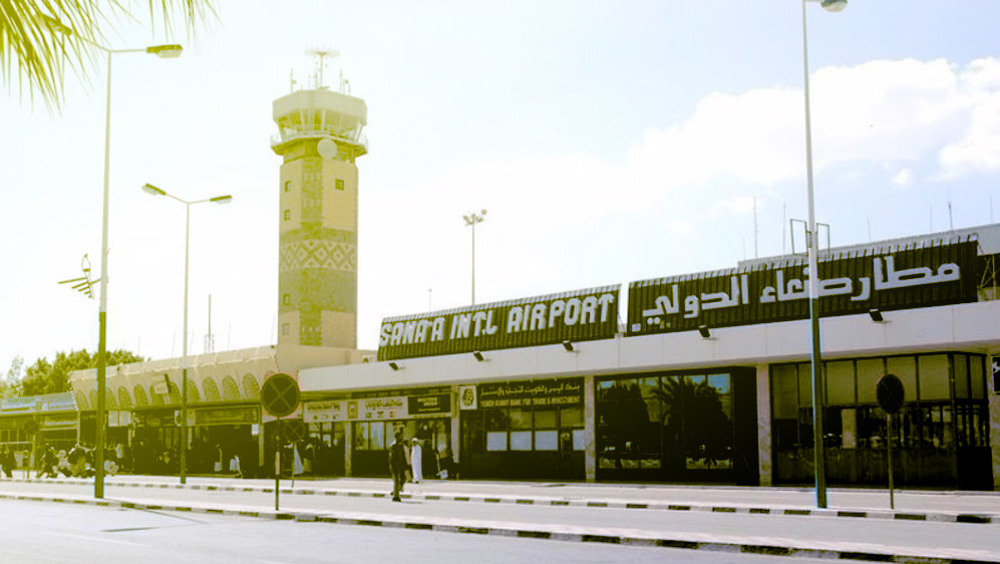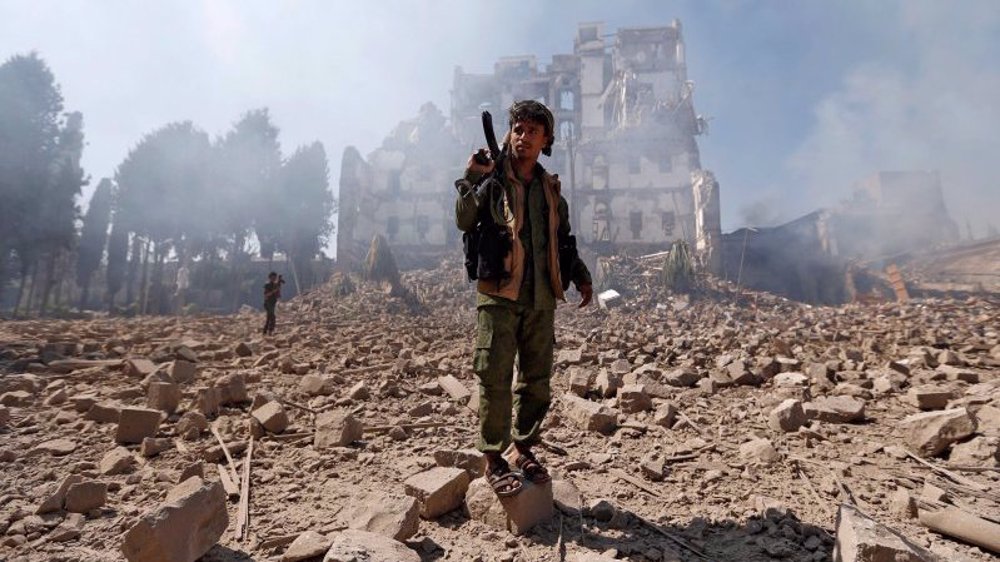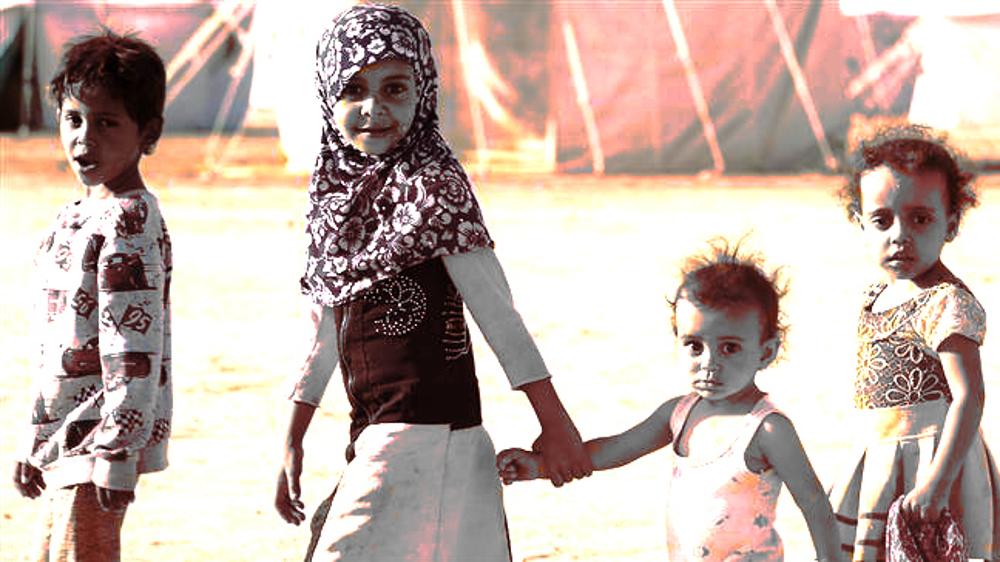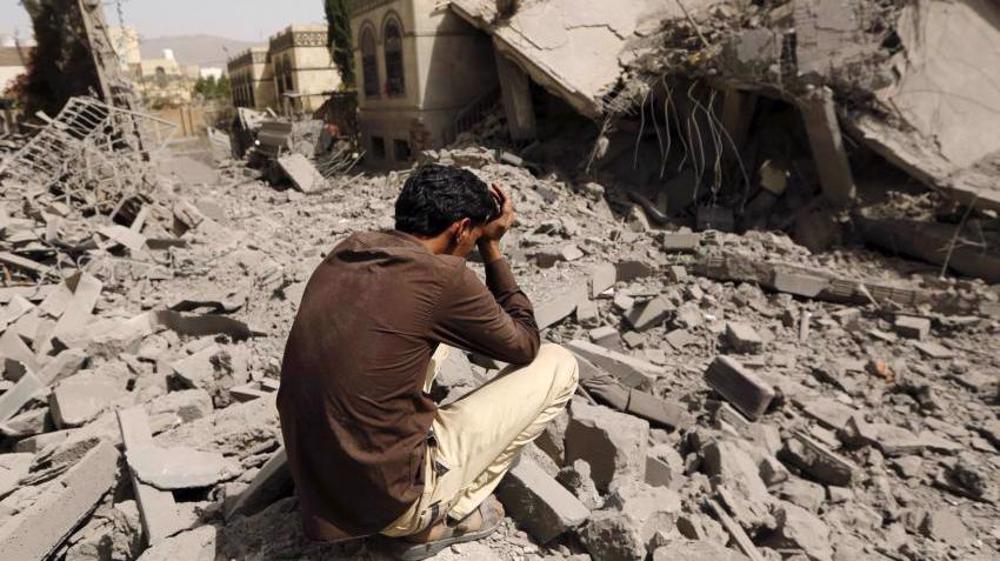Zarif: Iran supports efforts made by UN to resolve crisis in Yemen
Iran’s foreign minister says the Islamic Republic is ready to support special efforts made by the United Nations to resolve the ongoing crisis in the war-torn Yemen.
Mohammad Javad Zarif made the remarks in a Monday meeting with the visiting UN special envoy for Yemen, Martin Griffiths, during which the two sides discussed the latest developments in Yemen as well as ways to restore peace and stability to the war-ravaged country.
Referring to the developments in Yemen after the Saudi-led conflict plunged the country into chaos, the top Iranian diplomat stressed the need to reduce the suffering and hardships of the impoverished people of Yemen.
Zarif added that the sole solution to the Yemeni crisis is a political one, because the situation cannot be improved through imposition of war.
During the meeting, Zarif also expressed Iran’s full readiness to support any effective measure taken by the UN to resolve the crisis in Yemen in view of the very difficult conditions that plague the country as a result of the war and economic siege imposed on the Yemeni people by Saudi Arabia and its allies.
Griffiths, for his part, highlighted the importance of being informed of the Islamic Republic’s views on ways of restoring peace and stability to Yemen.
He also explained the UN’s viewpoints on the Yemeni crisis with special emphasis on the need to establish ceasefire, provide economic aid to the impoverished country and help resume political dialog among all involved parties.
The UN special envoy for Yemen arrived in Tehran on Sunday for consultations about the ongoing crisis in the Arab world’s poorest country, which has endured almost six years of incessant military aggression by a Saudi-led coalition.
During his stay, Griffiths has held meetings and exchanged ideas with top Iranian officials on the means of ending the crisis in Yemen.
Tehran devised a four-point plan aimed at restoration of peace to Yemen and submitted the proposal to the United Nations no later than a month after the Saudi-led coalition launched its attacks.
The plan proposes the establishment of a ceasefire, the transfer of humanitarian assistance to the war-hit nation, the launching of intra-Yemeni dialog, and the establishment of a broad-based government.
Backed by the US, the UK and other Western states, Saudi regime and a coalition of its allies have been engaged in a military against Yemen since early 2015 with the aim of reinstalling a Riyadh-friendly government there.
The campaign has failed to achieve its goals, thanks to the resistance put up by the Yemeni army and allied popular groups, but it has left the poorest Arabian Peninsula state mired in the “world’s worst humanitarian crisis,” as the United Nations put it.
According to the latest figure provided by the UN in December 2020, that war has claimed over 233,000 lives so far. The campaign of aggression has also left millions of Yemenis on the brink of famine and wreaked havoc on the country’s civilian infrastructure, including hospitals and schools.
D-8’s role in Iran’s economy after Cairo summit
China slams US as ‘war-addicted’ threat to global security
China ‘firmly opposes’ US military aid to Taiwan
VIDEO | Press TV's News Headlines
President Yoon Suk Yeol to be removed from office
At least 19 Gazans killed by Israeli airstrikes since dawn: Medics
Leader: Iran neither has nor needs proxy forces
US fighter aircraft shot down ‘in friendly fire’ amid aggression on Yemen



















 This makes it easy to access the Press TV website
This makes it easy to access the Press TV website